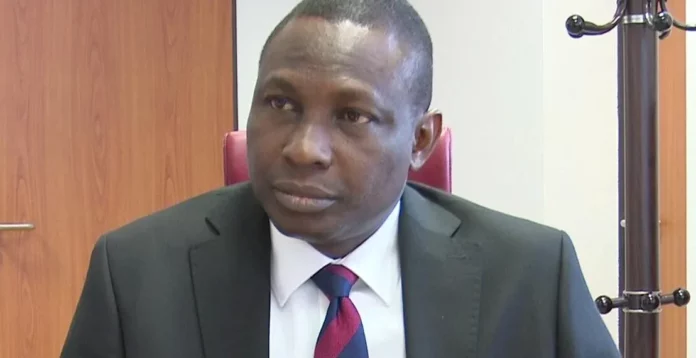The Economic and Financial Crimes Commission (EFCC) has disclosed that over N50 billion recovered from fraud-related cases in 2024 has been directed into the Nigerian Education Loan Fund (NELFUND). The move is part of the government’s effort to support students through the loan scheme established under the Students Loans (Access to Higher Education) Act, 2024, signed into law by President Bola Tinubu.
The announcement was made in Abuja through the EFCC’s 2024 statistical report, which detailed the agency’s financial recoveries for the year. According to the report, the EFCC recovered N364.6 billion alongside significant sums in foreign currencies, including $214.51 million, 54,319 euros, 31,265 pounds, CAD $2,990, and AUD $740. The agency also recovered funds in other currencies such as the CFA franc, UAE dirham, Saudi riyal, Japanese yen, Ghanaian cedi, and South African rand.
Record-Breaking Convictions and Investigations
Beyond financial recoveries, the EFCC reported an unprecedented number of convictions in 2024. The agency secured 4,111 convictions, the highest ever recorded in its 22-year history. This achievement, according to EFCC officials, reflects the agency’s intensified efforts to combat financial crimes in Nigeria.
In the course of the year, the EFCC processed a total of 15,724 petitions, carried out 12,928 investigations, and prosecuted 5,083 cases. The report further revealed that Lagos recorded the highest number of convictions, with 685 cases, followed by Enugu with 516 and Ibadan with 501.
The EFCC stated that a significant portion of the recovered funds has been allocated to government initiatives designed to benefit Nigerians, particularly in the education sector. The NELFUND, which received N50 billion from the recovered proceeds, was created to provide financial assistance to students who struggle to afford higher education. The scheme is expected to ease the burden on students by offering loans to cover tuition and other educational expenses.
Background on the Student Loan Scheme
The student loan initiative was launched by President Bola Tinubu’s administration as part of efforts to improve access to higher education in Nigeria. The Students Loans (Access to Higher Education) Act, 2024, aims to ensure that no Nigerian is denied tertiary education due to financial constraints. The government has promised to fund the scheme sustainably by directing proceeds from recovered assets and other sources.
NELFUND is expected to provide interest-free loans to students in public higher institutions. The loans will be repaid through salary deductions once beneficiaries gain employment after graduation. The program is intended to make education more accessible while reducing the financial burden on parents and guardians.
EFCC’s Role in Financial Recoveries
The EFCC has remained at the forefront of Nigeria’s fight against corruption and financial crimes since its establishment in 2003. Over the years, the commission has been responsible for recovering billions of naira from corrupt individuals and organizations. The agency’s work includes investigating financial mismanagement, cyber fraud, and money laundering, among other crimes.
The EFCC’s 2024 achievements demonstrate its commitment to ensuring that stolen public funds are returned and redirected toward national development. The allocation of recovered funds to NELFUND aligns with the government’s goal of investing in the future of Nigerian youths.
Public Reactions and Government Support
The decision to allocate a portion of the recovered funds to the student loan scheme has been met with mixed reactions. Some Nigerians have commended the EFCC and the government for channeling the funds into education, seeing it as a step toward addressing financial barriers in higher institutions. Others, however, have raised concerns about transparency and the proper utilization of the funds.
Education stakeholders have urged the government to ensure that the loan scheme operates efficiently and benefits the intended students. There have also been calls for adequate monitoring mechanisms to prevent corruption within the program.
Looking Ahead: EFCC’s Commitment to Anti-Corruption Efforts
The EFCC has assured Nigerians that it remains committed to its mandate of fighting corruption and financial crimes. The commission has promised to intensify its efforts in tracking and recovering stolen funds while ensuring that such recoveries are put to good use.
The agency has also reiterated its dedication to improving prosecution processes, strengthening legal frameworks, and collaborating with international anti-corruption bodies. Moving forward, the EFCC aims to enhance public awareness on the dangers of corruption and the importance of accountability in governance.
With its record-breaking achievements in 2024, the EFCC has positioned itself as a key player in Nigeria’s anti-corruption drive. As the government continues to implement policies that promote transparency and accountability, the role of the EFCC in safeguarding national resources remains crucial.

